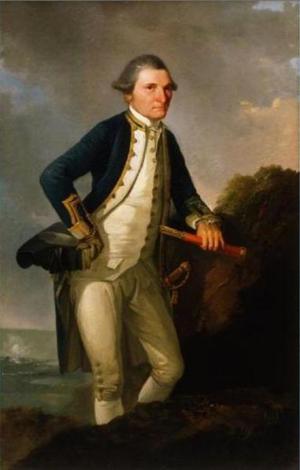| Author: | Russell Doubleday | ISBN: | 9781465624451 |
| Publisher: | Library of Alexandria | Publication: | March 8, 2015 |
| Imprint: | Language: | English |
| Author: | Russell Doubleday |
| ISBN: | 9781465624451 |
| Publisher: | Library of Alexandria |
| Publication: | March 8, 2015 |
| Imprint: | |
| Language: | English |
To-day I am at home in the little town of the fens, where the Ahwewee River falls some thirty feet from one level of land to another. Both broad levels were covered with forest of ash and maple, spruce and tamarack; but long ago, some time in the thirties, impious hands built dams on the impetuous Ahwewee, and wide marshes and drowned wood-lands are the result. Yet just immediately at Fentown there is neither marsh nor dead tree; the river dashes over its ledge of rock in a foaming flood, runs shallow and rapid between green woods, and all about the town there are breezy pastures where the stumps are still standing, and arable lands well cleared. The little town itself has a thriving look. Its public buildings and its villas have risen, as by the sweep of an enchanter's wand, in these backwoods to the south of the Ottawa valley. There was a day when I came a stranger to Fentown. The occasion of my coming was a meeting concerning the opening of new schools for the town—schools on a large and ambitious plan for so small a place. When the meeting was over, I came out into the street on a mild September afternoon. The other members of the School Council were with me. There were two clergymen of the party. One of them, a young man with thin, eager face, happened to be at my side. "This Mr. Toyner, whose opinion has been so much consulted, was not here to-day?" I said this interrogatively. "No, ah—but you'll see him now. He has invited you all to a garden party, or something of that sort. He's in delicate health. Ah—of course, you know, it is natural for me to wish his influence with the Council were much less than it is." "Indeed! He was spoken of as a philanthropist." "It's a very poor love to one's fellow-man that gives him all that his vanity desires in the way of knowledge without leading him into the Church, where he would be taught to set the value of everything in its right proportion." I was rather struck with this view of the function of the Church. "Certainly," I replied, "to see all things in right proportion is wisdom; but I heard this Toyner mentioned as a religious man." "He has some imaginations of his own, I believe, which he mistakes for religion. I do not know him intimately; I do not wish to. I believe he has some sort of desire to do what is right; but that, you know, is a house built upon the sand, unless it is founded upon the desire for instruction as to what is right. Every one cries up his generosity; for instance, one of my church-wardens tells him that we need a new organ in the church and the people won't give a penny-piece towards it, so Toyner says, with his benevolent smile, 'They must be taught to give. Tell them I will give half if they will give the other half.' But if the Roman Catholic priest or a Methodist goes to him the next day for a subscription, he gives just as willingly if, as is likely, he thinks the object good. What can you do with a man like that, who has no principle? It's impossible to have much respect for him." Now I myself am a school-master, versed in the lore of certain books ancient and modern, but knowing very little about such a practical matter as applied theology; nor did I know very much then concerning the classification of Christians among themselves: but I think that I am not wrong in saying that this young man belonged to that movement in the Anglican Church which fights strongly for a visible unity and for Church tradition. I am so made that I always tend to agree with the man who is speaking, so my companion was encouraged by my sympathy.
To-day I am at home in the little town of the fens, where the Ahwewee River falls some thirty feet from one level of land to another. Both broad levels were covered with forest of ash and maple, spruce and tamarack; but long ago, some time in the thirties, impious hands built dams on the impetuous Ahwewee, and wide marshes and drowned wood-lands are the result. Yet just immediately at Fentown there is neither marsh nor dead tree; the river dashes over its ledge of rock in a foaming flood, runs shallow and rapid between green woods, and all about the town there are breezy pastures where the stumps are still standing, and arable lands well cleared. The little town itself has a thriving look. Its public buildings and its villas have risen, as by the sweep of an enchanter's wand, in these backwoods to the south of the Ottawa valley. There was a day when I came a stranger to Fentown. The occasion of my coming was a meeting concerning the opening of new schools for the town—schools on a large and ambitious plan for so small a place. When the meeting was over, I came out into the street on a mild September afternoon. The other members of the School Council were with me. There were two clergymen of the party. One of them, a young man with thin, eager face, happened to be at my side. "This Mr. Toyner, whose opinion has been so much consulted, was not here to-day?" I said this interrogatively. "No, ah—but you'll see him now. He has invited you all to a garden party, or something of that sort. He's in delicate health. Ah—of course, you know, it is natural for me to wish his influence with the Council were much less than it is." "Indeed! He was spoken of as a philanthropist." "It's a very poor love to one's fellow-man that gives him all that his vanity desires in the way of knowledge without leading him into the Church, where he would be taught to set the value of everything in its right proportion." I was rather struck with this view of the function of the Church. "Certainly," I replied, "to see all things in right proportion is wisdom; but I heard this Toyner mentioned as a religious man." "He has some imaginations of his own, I believe, which he mistakes for religion. I do not know him intimately; I do not wish to. I believe he has some sort of desire to do what is right; but that, you know, is a house built upon the sand, unless it is founded upon the desire for instruction as to what is right. Every one cries up his generosity; for instance, one of my church-wardens tells him that we need a new organ in the church and the people won't give a penny-piece towards it, so Toyner says, with his benevolent smile, 'They must be taught to give. Tell them I will give half if they will give the other half.' But if the Roman Catholic priest or a Methodist goes to him the next day for a subscription, he gives just as willingly if, as is likely, he thinks the object good. What can you do with a man like that, who has no principle? It's impossible to have much respect for him." Now I myself am a school-master, versed in the lore of certain books ancient and modern, but knowing very little about such a practical matter as applied theology; nor did I know very much then concerning the classification of Christians among themselves: but I think that I am not wrong in saying that this young man belonged to that movement in the Anglican Church which fights strongly for a visible unity and for Church tradition. I am so made that I always tend to agree with the man who is speaking, so my companion was encouraged by my sympathy.















